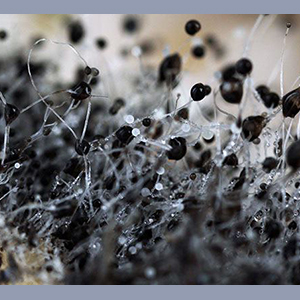
Black mold is a type of fungus that is very dark green or black and often has a distinct musty or damp, mildewy smell. Black mold can be one of several different species of fungus, including Stachybotrys chartum.It tends to grow on surfaces that contain a lot of cellulose, such as fiberboard, wood, gypsum board, or paper. The mold prefers damp, warm environments, and it can grow wherever the conditions are right.
Black mold exposure has the potential to be harmful in the long term, particularly in people with respiratory conditions and other risk factors. However, there are many exaggerated claims of the dangers of black mold on the internet. In otherwise healthy people, short-term exposure to mycotoxins is unlikely to cause harm. It generally takes time and consistent exposure to black mold for symptoms to develop.
In people with respiratory conditions, such as COPD, asthma, and respiratory allergies, inhaling black mold toxins may have the potential to worsen symptoms or trigger flare-ups.
The main symptoms of mold poisoning are common to other respiratory disorders, which can make diagnosis difficult. If a doctor suspects that a person's symptoms are due to the inhalation of mold toxins, they may order a test to check the levels of mold in their home. A doctor may also recommend allergy tests or blood tests if they think that an individual has a mold allergy. Blood tests involve taking a small sample of the person's blood and sending it to a laboratory for analysis. Doctors use these tests to check for the presence of specific antibodies that the immune system produces in response to mold toxins. They may also check for the mold toxins themselves.Skin prick tests are a standard method of allergy testing and can help determine whether a person is allergic to mold.
Read more about Black mold - https://www.medicalnewstoday.com/articles/323419.php
Preventing mold -
Regularly cleaning any areas where mold is likely to grow, such as bathrooms, showers, and damp rooms
Using a dehumidifier to reduce the amount of moisture in the air, particularly in areas where damp is a problem. Mold tends to thrive in places that are wet, humid, or both.
Keeping rooms warm and well-ventilated during cold or wet weather.
Checking pipes, gutters, and air conditioners regularly to avoid potential leaks and water damage.
If you have a problem with any kind of mold, please take contact with us info@baitel.ee
